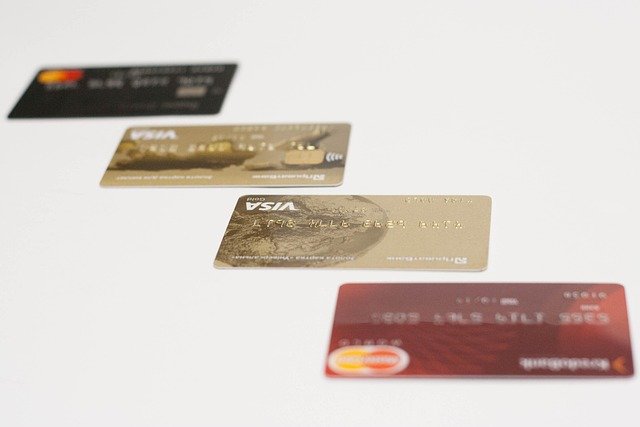Buying a Car with Bad Credit: What You Need to Know
Having bad credit can make buying a car challenging, but it's not impossible. Many people find themselves in this situation due to various financial circumstances. Understanding your options and taking the right steps can help you navigate the car-buying process more effectively, even with a less-than-stellar credit score. This article will explore the key aspects of purchasing a vehicle when your credit isn't ideal.

What options are available for buyers with poor credit?
If you have bad credit, you’re not entirely out of luck when it comes to buying a car. Several options exist for those with less-than-perfect credit scores:
-
Subprime auto loans: These are loans specifically designed for individuals with poor credit. While they often come with higher interest rates, they can provide an opportunity to finance a vehicle when traditional lenders may not approve you.
-
Buy-here, pay-here dealerships: These dealerships offer in-house financing and are often more willing to work with buyers who have bad credit. However, be cautious of potentially high interest rates and unfavorable terms.
-
Getting a cosigner: If you have a family member or friend with good credit willing to cosign your loan, this can significantly improve your chances of approval and potentially secure better terms.
-
Lease-to-own programs: Some dealerships offer lease-to-own options that may be more accessible to those with poor credit. These programs allow you to make payments towards owning the vehicle over time.
How can you improve your approval odds for a car loan?
While having bad credit presents challenges, there are several steps you can take to increase your chances of loan approval:
-
Check your credit report: Review your credit report for errors and dispute any inaccuracies you find. This can potentially boost your score.
-
Save for a larger down payment: A substantial down payment can offset some of the risk for lenders and may improve your chances of approval.
-
Improve your debt-to-income ratio: Pay down existing debts to improve your debt-to-income ratio, making you appear more financially stable to lenders.
-
Consider a less expensive vehicle: Opting for a more affordable car can increase your chances of approval and make monthly payments more manageable.
-
Gather proof of income and stability: Provide documentation of steady employment and income to demonstrate your ability to make payments.
-
Shop around for lenders: Different lenders have varying criteria for approving loans. Compare offers from multiple sources to find the best terms available to you.
What are the best cars to consider if you have bad credit?
When shopping for a car with bad credit, it’s essential to be realistic about your options. Here are some factors to consider and vehicle types that may be more attainable:
-
Used vehicles: Opting for a used car can significantly reduce the overall cost and may be more accessible with bad credit.
-
Reliable, economical models: Focus on vehicles known for reliability and fuel efficiency. Brands like Toyota, Honda, and Hyundai often offer affordable, dependable options.
-
Certified pre-owned vehicles: These cars often come with warranties and have been inspected, providing peace of mind without the higher price tag of a new vehicle.
-
Older model years: Consider cars that are a few years old, as they will have depreciated in value but may still offer modern features and reliability.
-
Basic trim levels: Choosing a car with fewer luxury features can help keep the price down and increase your chances of loan approval.
What should you know about interest rates and loan terms?
When buying a car with bad credit, it’s crucial to understand how interest rates and loan terms can affect your overall costs:
| Credit Score Range | Estimated APR Range | Average Loan Term |
|---|---|---|
| 781-850 (Excellent) | 2.4% - 3.5% | 60-72 months |
| 661-780 (Good) | 3.6% - 5.5% | 60-72 months |
| 601-660 (Fair) | 5.6% - 9.5% | 48-60 months |
| 501-600 (Poor) | 9.6% - 16.5% | 36-48 months |
| 300-500 (Very Poor) | 16.6% - 29.9% | 24-36 months |
Prices, rates, or cost estimates mentioned in this article are based on the latest available information but may change over time. Independent research is advised before making financial decisions.
With bad credit, you can expect higher interest rates and potentially shorter loan terms. It’s essential to carefully review and understand all terms before signing any agreement. Be prepared for APRs that could range from 10% to 30% or even higher, depending on your specific credit situation and the lender.
How can you avoid predatory lending practices?
When seeking a car loan with bad credit, it’s crucial to be aware of potential predatory lending practices:
-
Read all paperwork carefully: Understand every detail of the loan agreement before signing.
-
Beware of “yo-yo” financing: This practice involves a dealer allowing you to take the car home before financing is finalized, only to call you back later with less favorable terms.
-
Avoid unnecessary add-ons: Dealers may try to include expensive extras. Stick to the essentials to keep costs down.
-
Research market values: Know the fair market value of the vehicle you’re interested in to avoid overpaying.
-
Be cautious of extremely long loan terms: While they may lower monthly payments, they can result in paying significantly more over time.
Buying a car with bad credit presents challenges, but it’s not an insurmountable obstacle. By understanding your options, taking steps to improve your financial standing, and being cautious of potential pitfalls, you can navigate the process more effectively. Remember to shop around, compare offers, and prioritize vehicles that fit your budget to make the best decision for your financial future.




